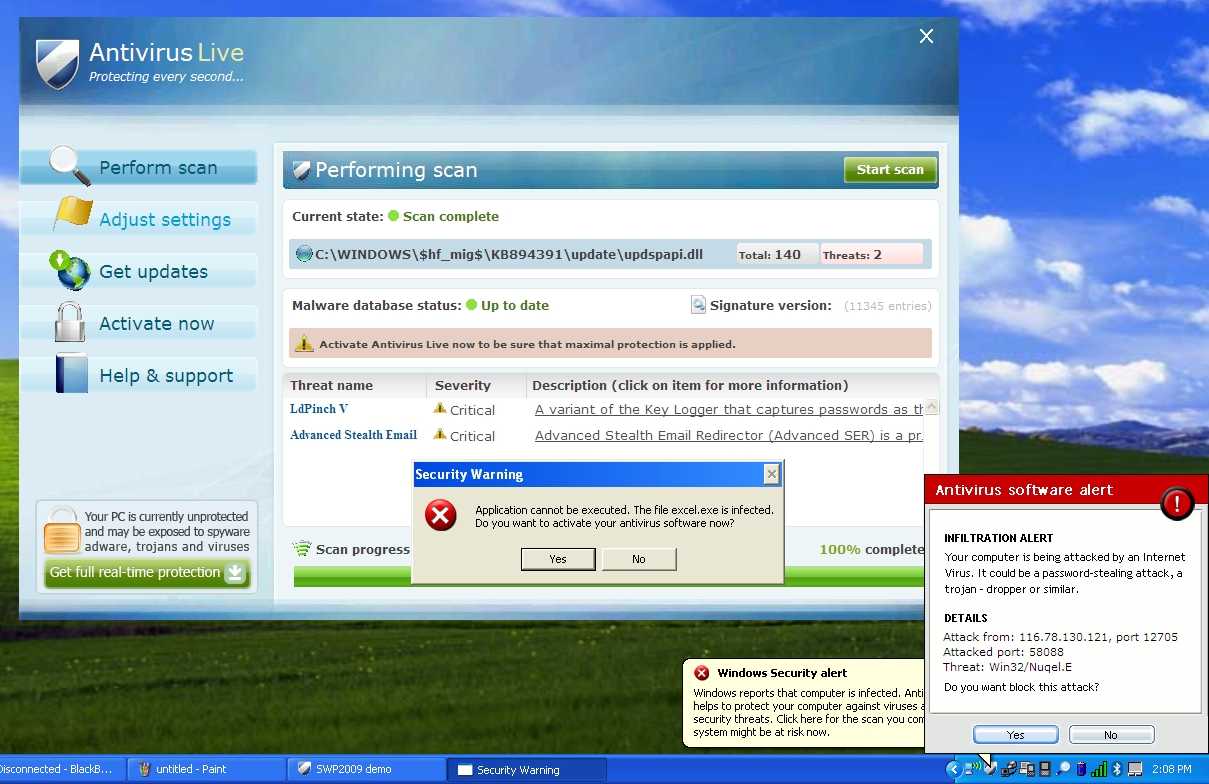Ahh, the holidays. A time for hairy kisses, awkward hugs, piles of food, and time with the family.
If you have even a mild interest in computers (or just happen to be under 30), it’s also a time when you wish you charged for computer repairs by the hour.

If it seems like everybody in the family needs help with their computer, we’ve got you covered with our list of seven simple ways to clean up and secure even the most clueless family member’s system.
Note: A few of these steps are aimed at Windows users, but many of them can also apply to Macs as well.
1. Add them to Email Watchdog!
As an Email Watchdog subscriber, you can add up to 10 addresses for just $10 a year. This means that as well as protecting your own email addresses, you can keep an eye out for Grandpa as well.
If your relative has managed to stay away from the eggnog, though, and knows what they’re doing on the Web, you can even set them up with a free Watchdog account of their own.
2. Trash the junkware.
Uncle Fred might have downloaded a movie editor, but he also happened to bag himself Ask Toolbar, MyPCBackup, and about three fake antivirus programs, too. Talk about a package deal!

First things first: head into the list of installed programs. You can find this in the Control Panel, or simply open Run (hit the Windows Key and R on a PC) and type ‘appwiz.cpl’ to view the carnage. From there, go through and uninstall anything remotely suspicious.
To avoid any mistakes, make sure you ask the computer’s owner which programs they use regularly, and which they don’t remember installing.
3. Run a malware removal tool.
There’s a huge array of free options for removing any malware, adware and spyware that might have survived the last step.
These programs can also take care of removing junk registry entries, cleaning any flotsam that’s been amassing over the decade since your Aunt Elma got her laptop.
Some solid choices, each with slightly different specialties are AdwareCleaner (for annoying popups and toolbars), Malwarebytes Anti-Malware (for less obvious nasties), CCleaner (for a junky registry) and Spybot (for spyware and tracker cookies).
4. Install updates.
Uncle Rod might have missed out on the latest security patches. Particularly if he’s still running Windows XP (try to hold back your groan), making sure he has the most recent updates installed is critical.
And if he is using Windows XP, maybe take some time by the fire to sell him on a new computer, since Microsoft is no longer updating XP to close new security holes.
Depending on which version of Windows he’s running, you can find ‘Windows Update’ in the Accessories of his start menu in Windows XP, Vista and 7; in Windows 8, you can find it in the Control Panel.
5. Set them up with a password manager.
If your relative is a quick learner, it’s also a great idea to set up an automated password manager like LastPass for them. Check out our quick guide to password managers for a full run-down.
Take a minute to teach them how to use it, as an investment in their security. Password managers can help keep them safe from phishing, as well as eliminate the weak or forgotten password problem.
6. Install (or update) antivirus software.
Nanna might still have an outdated trial of Norton or Trend Micro running, a relic from when she first purchased her computer. Hopefully, you’ll have dealt with this in step one; but now she’ll need a new, low-maintenance antivirus solution to take its place.
Take a look at some rankings for the best free or paid antivirus solutions, and pick one that suits her needs.
If she’s already paying for an antivirus subscription, ensure she has the latest version. If necessary, perform a fresh install of the software and check for updates and new virus definitions. Go through her quarantine or virus vault (depending on the software), and delete any detritus.
7. Set up a backup solution.
If your relative has important files (embarrassing childhood photos of you notwithstanding), try setting up a secure, automatic backup program. Take a look at our guide for some popular options, as well as tips to keep those files safe.
With these tips, we hope we can take some of the pain out of your holiday season. Give the gift of security … and try to lay low for another year!
